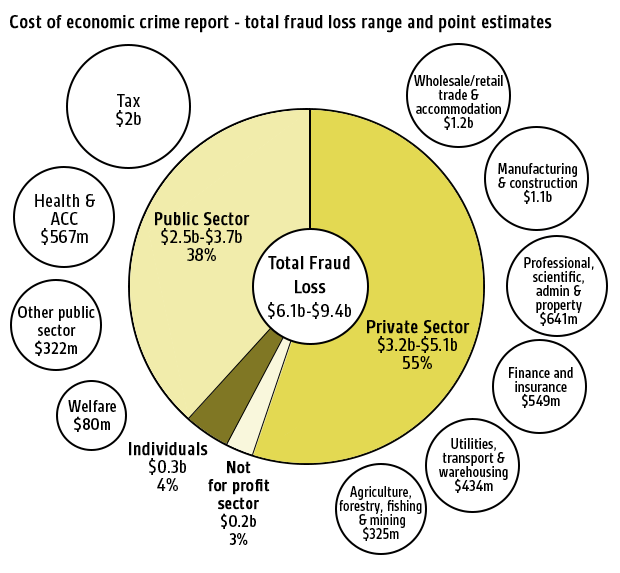Human Costs of Crime
RK Samuelson

“Little is known [of] the costs of crime to victims,” say Anna Bindler and Nadine Ketal. Crime imposes direct and indirect, short and long-term costs on victims and society. Thus, the real cost of crime is little known.
Direct and indirect costs of crime.
“Direct costs include administrative costs for policing, courts and sanctions,” says Bindler and Ketel, which are easy to measure from government reports. Indirect costs, occurring both through the offender, such as punishment or restitution, and the victim, such as loss of employment or health, are more difficult to measure. Bindler and Ketel reveal victims earn up to 12.9 per cent less in the aftermath of a crime than before and become more dependent on social benefits, at least in the short run.
The study was conducted in 2020 at the University of Cologne and the VU Amsterdam. by Associate Professor Anna Bindler and Assistant Professor Nadine Ketel. They analysed data of more than 800,000 crime victims in the Netherlands over a 12-year period. The result is important insights into the real cost of crime for victims.
Individual participants, in the study, were subject to several crimes. Men were over-represented in crimes of assault and burglary. Women were over-represented in pickpocketing and sexual offences; women were also less likely than men to be partnered or have children.
Bindler and Ketel found that depending on the offence, both men and women earn up to 12.9 percent less than before a crime and received social benefits on up to 6 per cent more days per month after than before. This may be because some victims change to a lower-paid job. Alternatively, victims may lose employment as they are no longer able to continue their work due to physical or mental health effects of the incident.
Effects of crime by gender.
The effects of criminal victimisation vary by gender. The study found the income of women declined more than did that of men for the examined offences. A year after a violent crime, earnings decreased by up to 7.5 per cent for males and up to 10.4 per cent for females. After property crimes, especially robbery, males earned up to 8.4 percent less, wheras females faced a decline of up to 12.9 per cent.
Bindler and Ketel also examined the effect after domestic abuse. They found a greater effect, of up to 17.9 per cent lower earnings, among women. As well, women had as a strongly increased dependence on social benefits after being abuse. The incidence of divorce increases in the year after victimisation as does moving to a new home, which the Bindler and Ketel call correlated shocks.
Gender differences, in part, seem a result of the nature of crimes women and men experience. It may also, in part, be how women and men differ in response to victimisation. The data need extension to include consideration of social class and socialisation.
Overall, the authors calculated an aggregated loss of earnings of about 366 million Euros in the first year after assault. Crime affects society as well as individuals. The cost is high, but might be somewhat offset by greater expenditure on prevention.
“Across offences,” says Bindler and Ketel, “males and females experience significant decreases in earnings, up to minus 12.9 per cent, and increases in receipt of social benefits, up to 6%, after victimisation. The negative labour market responses are lasting; up to four years and accompanied by shorter-lived responses in health expenditure. Additional analyses suggest that victimisation is a life-changing event leading to escalation points in the lives of victims,” well beyond the immediate aftermath of the crime.
How Bindler and Ketel help.
“Our research helps to further our understanding of the social costs of crime,” says Anna Bindler, Economist at the University of Cologne. The results could be an impetus for thinking [of] appropriate compensation payments or further assistance for victims of crime, such as labour market programmes,” which ease victims, especially women, back into the work force.
For more information contact Katie Hurley, BlueSky PR at khurley@bluesky-pr.com or call +44 (0) 7538 412793
Robert King Samuelson, in his own words, "is a perspiring writer trying to raise his voice above the cackling insolence and fractured language of the bloggery."
- Crises in America
- Stonewall at Fifty
- What Trump Teaches
- The GOP as Faust
- Human Costs of Crime
- Impeachment May Help Trump
- Curse of Laboriousness
Click above to tell a friend about this article.
Recommended
- David Simmonds
- Rebuilding Icons
- The No-fly Zone
- New Olympic Sport

- Sjef Frenken
- The Truth Unveiled
- Democracy Covered
- Saving the Environment

- Jennifer Flaten
- Wisconsin Peaches
- Blizzards
- On the Shelf

- M Alan Roberts
- Rise or Die
- Wild Horses
- Rich Moments

Recommended
- Matt Seinberg
- WPLJ-FM Rocks into Oblivion
- Surgery and Drugs
- Holiday Prep

- Streeter Click
- Orhan Pamuk
- Summer & Bradley
- Phil Collins: Into the Air Video

Recommended
- AJ Robinson
- Call Me Spartacus
- Mistress of the Remote
- Two Silver Birds

- Jane Doe
- Vintage Radios
- A Coffee Mug
- Argo

- M Adam Roberts
- No Quitter
- Working for the Man
- Watch Your Mouth

- Ricardo Teixeira
- The Unicorn
- Harmony
- There is a Light




